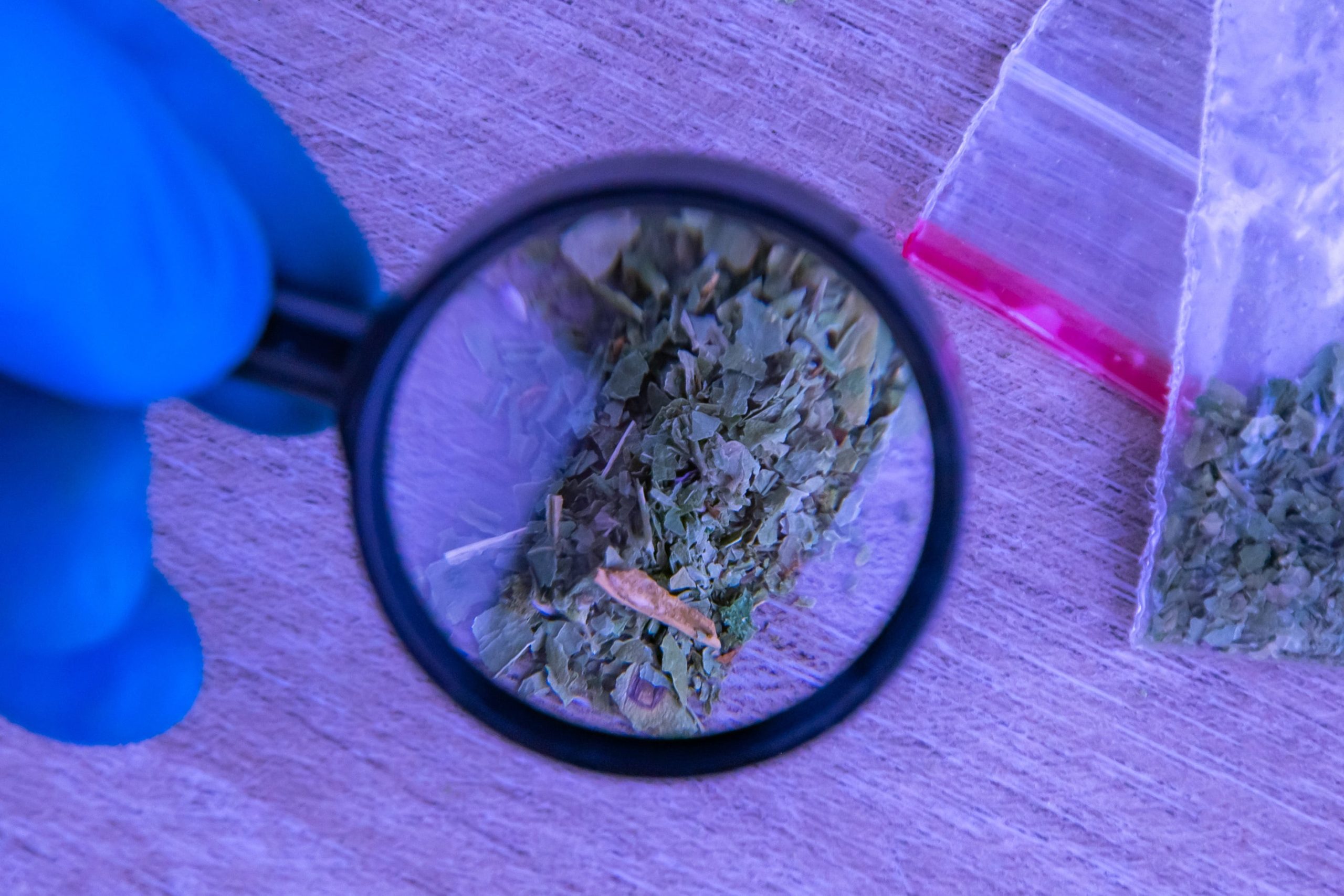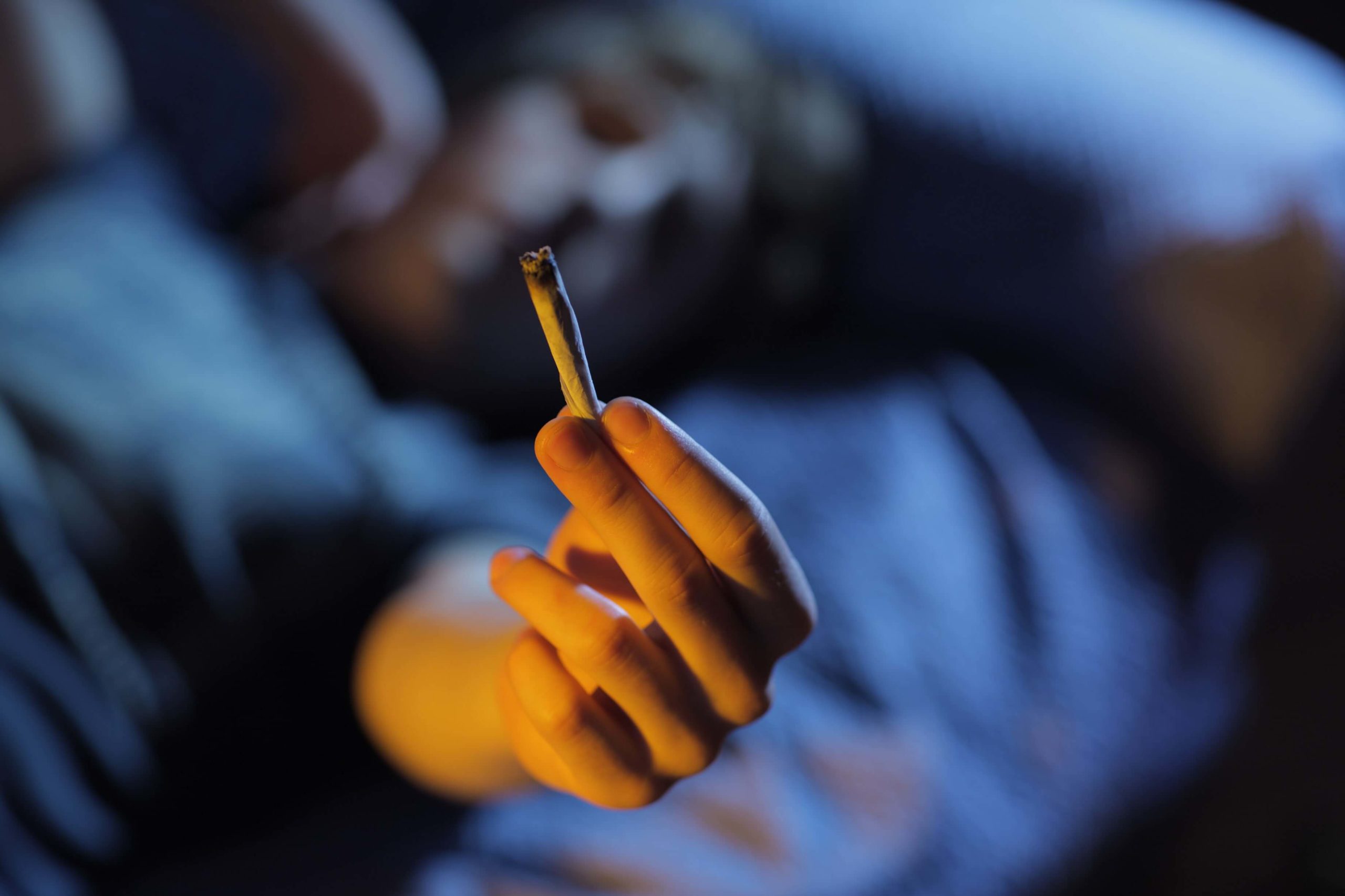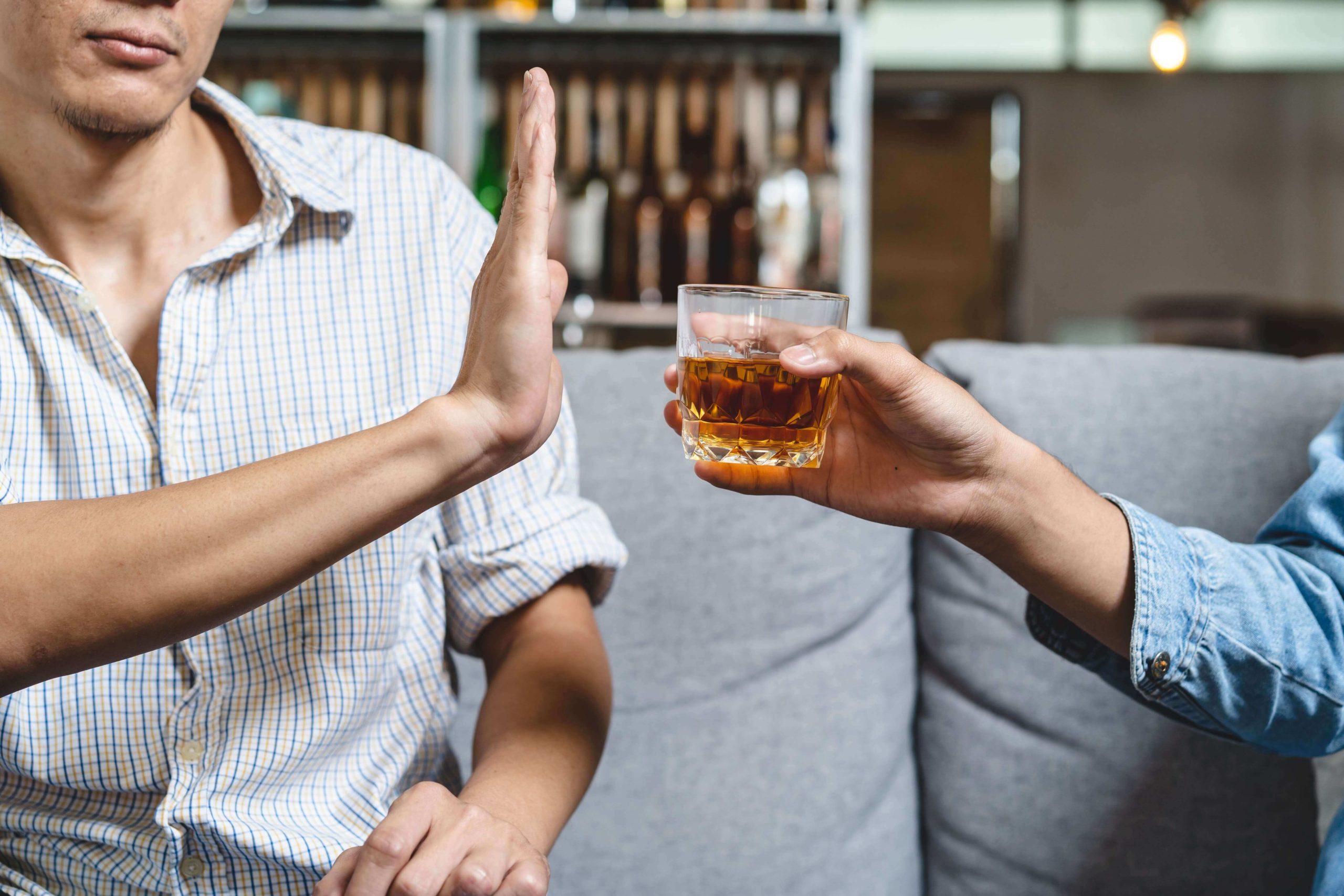Many people mistakenly believe synthetic drugs are less dangerous because they’re made in a laboratory, but these drugs can still pose a serious threat to users’ health.
Continue reading6 Steps to Reduce — Then Stop — Your Marijuana Use
Last year, the number of Americans who used marijuana nearly doubled. Out of the 48.2 million Americans who used marijuana in 2019, approximately 10% of them became addicted to the substance. Although many states continue to legalize marijuana, using the substance remains a potentially addictive habit. Luckily, reducing—and ultimately eliminating—your marijuana use can help you minimize your risk of addiction and lessen some of the substance’s most adverse effects.
The Effects of Marijuana
Marijuana, also known as “cannabis” and “weed,” is one of the most commonly used addictive substances in America. When first consumed, marijuana can make you feel relaxed, joyous, free of pain, and temporarily euphoric. However, using marijuana can also have some negative impacts on your health, which can include:
- Permanent IQ loss
- Respiratory problems
- Memory difficulties and cognitive impairments
- Increased risk of anxiety, depression, and mood swings
- Weakened immune system
- Increased risk of cancer
6 Practical Ways to Stop Marijuana Use
If you want to effectively stop your marijuana use, you need to take practical steps toward your overall goal. For many individuals, quitting “cold turkey” can be harmful and disruptive. One of the most effective ways to quit instead is to understand your current usage, take steps to slow your consumption and seek professional help. Here are a series of steps to help you get started.
- Talk to your doctor about your desire to quit. You won’t effectively reduce your marijuana use without support and guidance. Before speaking with your doctor, try recording how much marijuana you consume on a regular basis by writing down your usage. You can even add a bar or line graph in your written record which can visually show you whether you’re reducing, increasing or maintaining your marijuana consumption. When you visit your doctor, discuss ways that you can reduce this number and ultimately abstain altogether.
- Publicly commit to stop using marijuana. One of the most effective ways to cut back on your marijuana usage—and ultimately stop consuming the drug altogether—is to work with an accountability partner. This may be a friend or a loved one who is already sober or someone you know and trust. Publicly commit to stop using the drug and ask them to hold you accountable through regular check-ins.
- Choose an alternate activity. Commit some of the money and time you typically spend consuming marijuana and do something else. Buy new clothes or shoes. Take a trip. Purchase a gym membership. Go see a baseball, basketball, or football game. Spend time with friends and loved ones. Whatever the activity you choose, make sure you surround yourself with people who aren’t going to use marijuana in front of you.
- Once you’ve begun to taper, seek professional treatment. Now that you’ve taken steps to reduce your marijuana usage on your own, you can take the next step to ultimately remove marijuana from your life entirely. Seeking professional help from a therapist, doctor, or licensed addiction treatment professional can ensure you’re able to fully quit.
- Find a support group. One of the most effective ways to stay marijuana-free for the long term is to find a group of like-minded individuals who are also getting sober. Ask your addiction treatment provider for a recommendation of a suitable group near you or visit a local Narcotics Anonymous (NA) meeting for a free, confidential source of support.
- Enlist trusted friends to hold you accountable. Find a trustworthy, reasonable person in your life who will ensure that you take the necessary steps to cut down on your marijuana consumption. Make sure this person is comfortable establishing strong boundaries and enforcing your desire to use less marijuana and ultimately quit.
Helping You Reach Your Recovery Goals
Here at Soba, our mission is to help you reach your recovery goals. When you’re looking to quit marijuana, we’re here for you. Our wide range of treatment services can help support you wherever you are on your recovery journey. Don’t spend another day trying to figure out sobriety and recovery on your own. Let us help you. Take action by contacting us today if you or a loved one are looking to get a better handle on your use of marijuana or any other kind of addictive substance.
What Leading Treatment Programs Have in Common
There are more than 14,500 drug and alcohol rehabilitation centers in the United States. Even though all rehab centers can potentially help you overcome addiction, not every drug and alcohol treatment center is the same. Let’s explore what the nation’s leading rehabilitation centers have in common.
What to Look For in A Rehab Center
Wide Range of Recovery Services
Addiction is a complicated disease and there’s no one-size-fits-all treatment recovery plan. That’s why leading treatment centers offer a wide range of recovery services and customizable treatment plans. Here at Soba Recovery, we provide detoxification, residential inpatient, partial hospitalization, intensive outpatient, outpatient, sober living, and aftercare services. We also take our clients’ unique addiction challenges and circumstances into account when developing an individualized treatment plan. Many rehab facilities provide therapy, individual counseling, and medication, but leading treatment centers will have a wide variety of recovery services in order to meet your specific recovery needs.
Evidence-Based Treatment Methods
The most successful treatment programs rely on evidence-based treatment methods. This means that leading treatment programs incorporate therapies, peer support methods, sober activities, and lifestyle changes that are effective and backed by years of research and studies. If the treatments have worked for other individuals, the method is more likely to work for you! Some of the most common evidence-based approaches for addiction recovery include:
- Medically supervised detox
- Individual and group counseling
- Behavioral therapies such as cognitive behavioral therapy (CBT), dialectical behavioral therapy (DBT), motivational interviewing (MI), family therapy, contingency management, 12-step facilitation therapy, community reinforcement approach (CRA), and eye movement desensitization and reprocessing (EMDR).
- Lifestyle changes such as exercise and nutrition
- Interactive journaling
A Focus on Underlying Issues
The nation’s leading recovery programs address underlying issues such as mental health challenges, traumatic stress, and emotional and psychological pain. Without addressing these issues, recovering addicts are much more likely to relapse. Underlying issues can be addressed in group or individual counseling, other forms of therapy, or in a dedicated dual diagnosis program that treats mental health and substance use disorders simultaneously.
A Focus on Overall Health
Leading drug and alcohol recovery programs also focus on individuals’ overall health. Truly recovering from drug and alcohol addiction requires so much more than abstinence from addictive substances. You also have to develop healthier habits. The best rehab centers will help you improve your overall health by incorporating physical fitness and a balanced, nutritious diet into your recovery treatment plan. Good rehab centers help you get off drugs, while the best treatment centers will help change your life.
Strong Ongoing & Aftercare Support Options
Recovery doesn’t end when individuals complete a treatment program. That’s why the best recovery centers provide extensive, ongoing support. Some of the most common examples of aftercare support include:
- 12-step programs and peer support groups
- Ongoing counseling and therapy
- Family counseling and education
- Relapse prevention programs
- Outpatient treatment or post-treatment programs
- Sober living homes
- Vocational support
Dedicate, Compassionate, and Licensed Staff
Top-rated treatment programs also have dedicated, compassionate, and licensed staff members. These individuals are the people who will interact with you on a daily basis. They’ll check your vitals, monitor your health, facilitate your therapy, help keep you motivated, assess your progress, and connect you with aftercare, sober living, and vocational support. At Soba Recovery, we employ compassionate staff members that are passionate about helping you obtain long-term recovery.
Receive Treatment at A Leading Recovery Program in Arizona and Texas
At Soba Recovery, we offer a wide range of treatment programs that incorporate a variety of evidence-based treatment methods to help restore individuals’ physical, emotional, and mental health. We also work to resolve any underlying issues that may have contributed to our clients’ addiction challenges. Recovery is possible. We can help you get there. Contact us today if you want to learn more.
Can You Stop Drinking Permanently?
Even though drinking is one of the most accepted social activities in America, alcohol remains one of the world’s most addictive substances. In 2019, 14.5 million Americans over the age of 12 had an alcohol use disorder. Grappling with alcohol addiction challenges can make you feel like you’ll never be able to permanently stop drinking. Your brain, which has become accustomed to alcohol as a primary source of pleasure, tricks you into thinking that you need to drink in order to feel and function well. That’s not true. You don’t need alcohol to overcome pain, deal with stress, and feel good. In fact, you don’t need alcohol at all. Alcoholism is a treatable condition and long-term sobriety is possible. With the help of recovery centers like Soba, you can even stop drinking permanently.
Practical Ways to Give Up Alcohol For Good
Addiction damages areas of the brain that help regulate your choices. Luckily, the brain is plastic, meaning it is capable of changing and developing new habits. Here are a few practical tips that can help you give up alcohol forever.
1. Understand Your Relationship with Alcohol
Knowing why you drink is an essential part of treating alcohol addiction. Oftentimes, stress, relationship problems, trauma, insomnia, anxiety, boredom, and mental health issues are some of the most common reasons individuals drink. Luckily, enrolling in a rehabilitation program and undergoing behavioral therapy can help you understand your relationship with alcohol, avoid triggers, and find healthier ways to address those issues.
2. Make Your Intentions Known
Tell family members, friends, and even coworkers that you’re giving up alcohol permanently and explain why. If they understand why you’ve decided to stop drinking, they can help support your sobriety and hold you accountable. Reminding yourself and people close to you of the reasons why you want to quit alcohol can help you stay sober.
3. Avoid Temptations
If you’re serious about giving up alcohol, you’re going to need to avoid situations where you may be tempted to drink, especially during the earlier stages of your recovery. You may need to avoid pubs and go to restaurants that don’t sell alcohol. You should also identify times of the day when you would usually drink and fill that part of the day with a healthier activity instead.
4. Practice Meditation and Mindfulness
Meditating and practicing mindfulness can help rewire the parts of the brain negatively impacted by addiction. Meditation can increase the neural density and functionality of the prefrontal cortex, the brain’s happiness center, retraining the brain to experience pleasure without alcohol. Meditation and mindfulness can also make you less vulnerable to stress and help you “urge surf,” or better resist waves of alcohol cravings.
5. Reward Your Progress
Rewarding yourself for not drinking can help you stay motivated and maintain positive change. Begin by rewarding yourself for alcohol-free weeks. You can take a road trip or treat yourself to some new clothes and gadgets with the money you’re saving on alcohol. As you become more comfortable with your sobriety, you can reward yourself for an alcohol-free month and so on.
Helping You Change Your Life for The Better
At Soba Recovery, we care about your recovery. Our multiphase addiction treatment program combines evidence-based therapies with additional wellness treatments like yoga, meditation, chiropractic care, nutrition, and acupuncture. Alcohol doesn’t have to dictate your life. You can stop drinking permanently and we can help you get there. Contact us today if you or a loved one have an addiction to alcohol.





